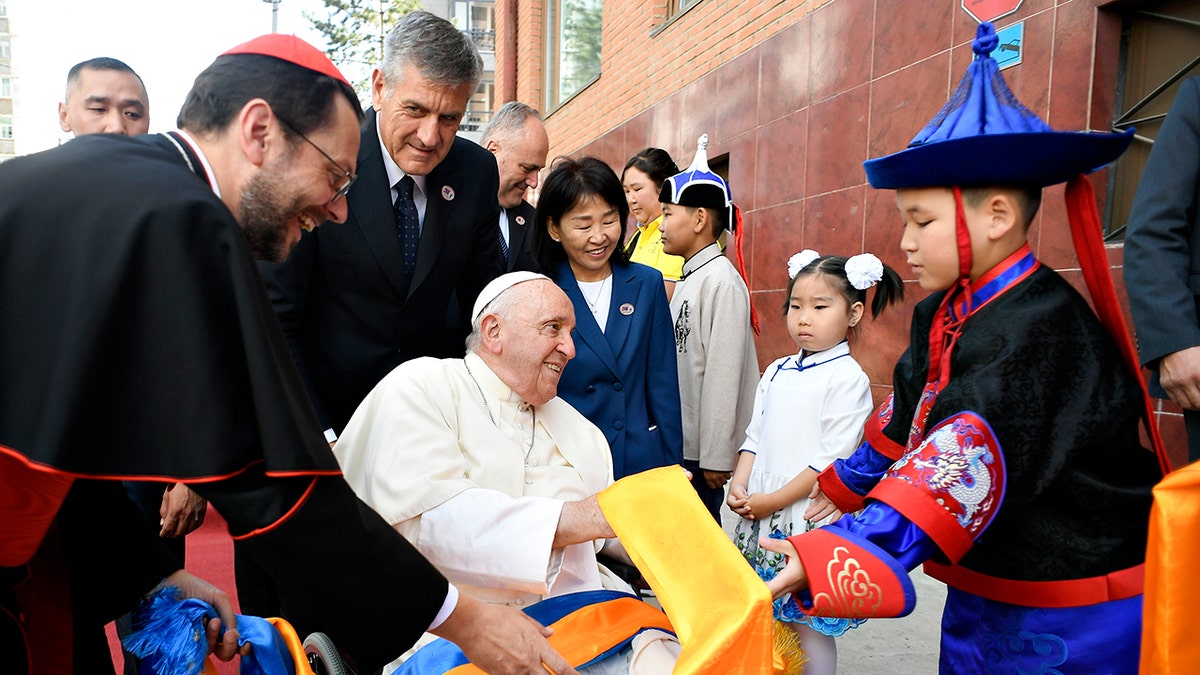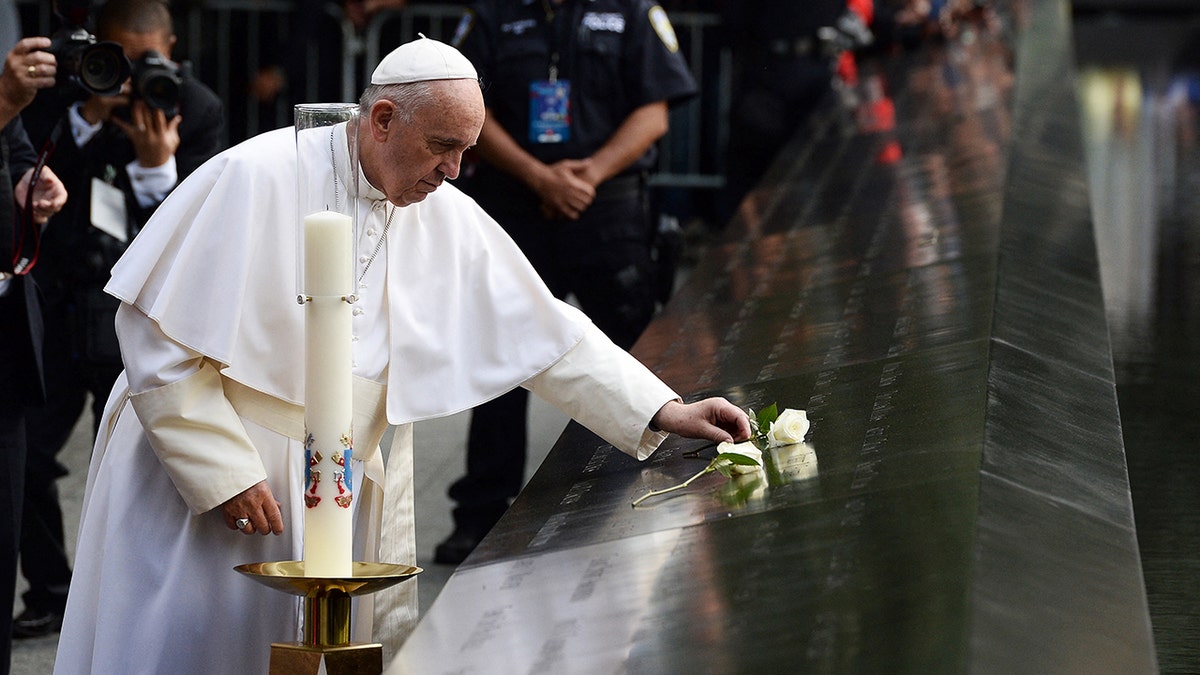NEWYou can now listen to Fox News articles!
At one of the meetings of cardinals in advance of the conclave of 2013, Jorge Mario Bergoglio, the archbishop of Buenos Aires, rose to speak.
In simple but provocative language, he called for a Church that goes out from itself to the margins, both physical and existential. A Church that remains focused on itself, preoccupied with its own disagreements and tensions, will be, he insisted, ineffectual.
By all accounts, this was the speech that secured his election as pope just a few days later. And it is, furthermore, the speech that set the tone for the entire Francis papacy.
In word, gesture and deed, Pope Francis consistently reached out to those on the edges – the poor, the disenfranchised, migrants, those disaffiliated from the Church – and endeavored to bring them to the center.
POPE FRANCIS WAS DISRUPTIVE. NOW, THE NEXT POPE MUST CLEAN UP THE ‘MESS’
One could sense this instinct too in the way he chose cardinals, often overlooking traditional power centers and offering the Red Hat to bishops in places such as East Timor, Mongolia, El Salvador and even Newark, New Jersey.
He was the pope of simplicity, a man with the common touch, or in his memorable phrase, “a shepherd with the smell of the sheep.”
Just days after his election, he returned to the rather ordinary priests’ residence where he had been lodging in order to pay his bill in person; he lovingly embraced a man with severe facial disfigurement; he washed and kissed the feet of prisoners on Holy Thursday; he chose to live, not in the splendid papal palace but in a small apartment within the Casa Santa Marta; he never visited the summer palace at Castel Gondolfo, much loved by his predecessors; and he eschewed elegant limousines for an almost comically small Fiat.
Through all of these gestures, he was signaling that he wanted a “poor Church on behalf of the poor.” At a time when the reputation of the Church was at historic lows due to the clergy sex scandals, this was a source of great encouragement to many Catholics around the world.
He was a pope of the Earth. I realize that in saying this, I risk portraying him simply as a Euro-left environmentalist, but this would be a gross misrepresentation.
FAITH LEADERS REFLECT ON POPE FRANCIS’ DEATH, PAPACY AND LASTING LEGACY: ‘MADE HIS MARK’

In summoning the Church to a concern for nature, which in his phrase had become “a pile of filth,” he was hearkening back to a biblical and premodern sense that the human drama plays out in the far wider context of God’s good creation.
The title of his encyclical letter dedicated to this topic – Laudato si – came from St. Francis of Assisi’s Canticle of the Creatures, an ecstatic hymn to the beauty of “brother sun and sister moon.” When one reads through Laudato si, one is struck by the steady polemic against “modernity” and its “technocratic mentality,” which makes of the environment nothing but an object for human manipulation.
Francis was most certainly a pope preoccupied with issues of justice, especially between nations. In his encyclical Fratelli tutti, he called upon the classic Catholic teaching regarding the universal destination of goods and was called a Marxist for his troubles.

The doctrine, sharply articulated by St. Thomas Aquinas, holds that private ownership is valid but that the use of what one owns should be determined by a primary concern for the common good. A novelty of Pope Francis was to apply this principle not just to the individual but to nations, so that prosperous countries must consider the suffering and need of their poorer neighbors.
POPE FRANCIS AND US PRESIDENTS: A LOOK BACK AT HIS LEGACY WITH THE NATION’S LEADERS
Nowhere did this teaching come to a sharper point than in the pope’s consistent advocacy of migrants seeking a better life.
If I were to speculate, I imagine what he would most want to be remembered for is his advocacy of synodality. By this admittedly rather slippery term, he meant a Church marked by listening, accompaniment and consultation.
Pope Francis was always suspicious of over-centralization, and synodality in practice is the means by which the local churches in all of their variety and particularity are brought into the ecclesial conversation.
This commitment to synodality was undoubtedly born of the pope’s deeply Jesuit formation in the process of spiritual discernment, which is to say, a patient listening to the promptings of the Holy Spirit in advance of making a serious decision. In pursuit of this goal, Pope Francis sponsored two international synods on the topic, gathering 400 bishops, priests and lay people for intense conversations.
CLICK HERE FOR MORE FOX NEWS OPINION
I was privileged to be an elected delegate to these assemblies, and I can testify that conversations across ideological, geographical and cultural boundaries unfolded. Whether this effort will have a long-lasting effect on the life of the Church is debatable.
On the negative side of the ledger, I might indicate that, for many, the pope’s generous outreach amounted to a watering-down of Catholic moral teaching, especially in regard to marriage and sexuality.

Amoris Laetitia (which at least hinted at the possibility of Communion for the divorced and remarried) and Fiducia Supplicans (which allowed for the blessing of those in same-sex relationships) remain highly controverted documents. The latter was effectively vacated by the bishops of Africa. And the synodal process strikes many in the Church as a turning away from evangelical witness and a turning toward endless and finally fruitless dialogue, the Church chattering to itself rather than boldly announcing Christ to the world.
At times, too, Pope Francis could appear the master of the false dichotomy: mercy rather than moral demand, going to the margins rather than maintaining the center, privileging laity over the clergy, etc. All of this has led some to hope for a more moderate and prudent pope after the 12 years of the relatively free-wheeling Francis.
In the end, I believe we should appreciate him as a man deeply marked by his Jesuit training to identify with the person of Jesus Christ. And this meant, for Pope Francis, to be the bearer of the divine mercy, the one who would invite deeply wounded souls into the field hospital of the Church.
CLICK HERE TO READ MORE FROM BISHOP ROBERT BARRON
Read the full article here







Leave a Reply